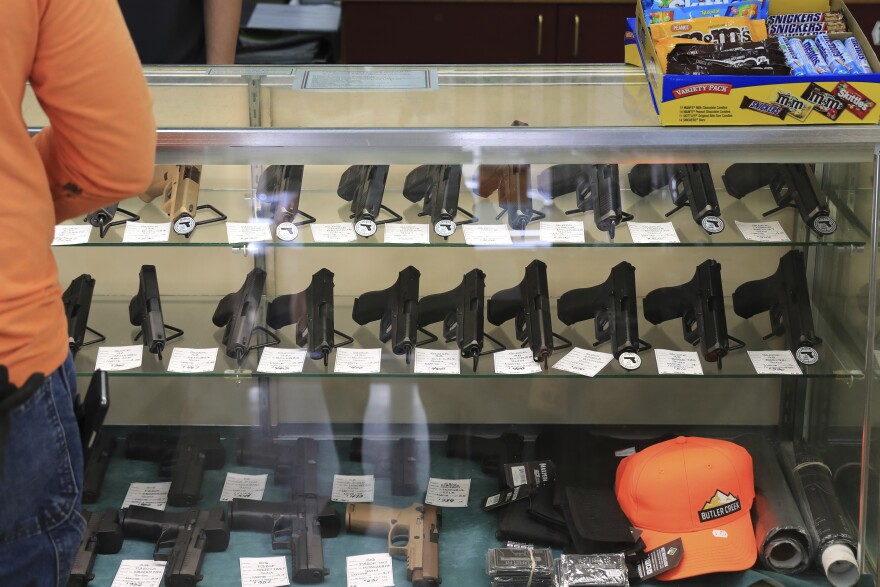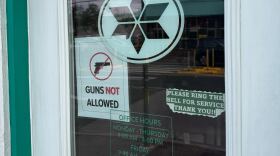The U.S. Supreme Court on Thursday struck down a nearly 110-year-old gun law in New York state that restricted who could obtain a permit to carry a gun in public.
In the ruling, justices said the law conflicts with the Second Amendment's right to bear arms.
The director of the local gun rights group Hawaiʻi Firearms Coalition, Andrew Namiki Roberts, celebrated the decision, saying, "The decision overturned New York's policy on issuing concealed carry or open carry permits only to those that can show good cause."
"It essentially allowed their police chiefs and their state police departments to pick and choose who they issued permits to based on how much of a need they felt they have," he said. "Hawaiʻi's law is very, very similar to that, in the fact that the police chief is the only person that can determine whether you can carry or not."
A similar lawsuit — Young vs. Hawaiʻi — is also pending at the Supreme Court. The state is challenging a ruling by the Ninth Circuit Court of Appeals, which ruled in favor of Big Island resident George Young last year. The court's opinion stated Hawaiʻi's open carry law was invalid for burdening a core right to bear arms.
Namiki Roberts says the recent decision by the U.S. Supreme Court sets a precedent for the Young suit, and opens the door for other groups to challenge the state's gun laws.
"This opens up all of Hawaiʻi's [gun] laws. This is going to be almost like having a completely clean slate," he told HPR. "Essentially any lawsuit that's been filed in the past that was ruled against, we will be able to go back and re-look at those laws. So we'll be able to challenge permitting, registration, waiting periods."
Namiki Roberts says he isn't opposed to gun regulations, as long as it is sensible and doesn't prevent or pose challenges for responsible gun owners.
Meanwhile, local gun safety advocates expressed their disappointment over the court's decision.
"It kind of flies in the face of everything else that has been going on in this country — with regard to gun safety," said Chris Marvin, a U.S. Army veteran and local consultant with the group Everytown for Gun Safety.
"Literally across the street, at the same time, the Senate was moving through a bipartisan bill that is going to enhance gun safety across the country. And hopefully prevent mass shootings and keep guns out of the hands of dangerous people. And then meanwhile, the Supreme Court is sort of undermining those types of laws."
Marvin says the state can attribute its low gun violence and death rates due to it having the strictest gun ownership laws in the country. But he does have concerns.
"Hopefully, our Legislature can get to work and make sure that we're continuing to pass those kinds of laws. And that this Supreme Court decision doesn't materially affect the way we practice gun safety in Hawaiʻi," Marvin said. "But it could over time. And if that happens, we may have to get used to people carrying guns around Waikīkī, which seems really scary."
Marvin told HPR that gun laws and proposals are not aimed to take away a citizen's right to bear arms, but to create a safer society, and keep firearms out of the reach of dangerous people.
"I learned a lot about guns in the military, how to handle them, how to store them, how to use them, and the fact that they're used to take human life," he said.
"We, obviously, have a large military and veteran population here. It's a lot of people who know actually a lot about gun safety and about guns. And if you go into our military bases, you don't see anybody except for the military police officers carrying guns, right? So the military restricts the use of guns in their environment in that way. And Hawaiʻi currently does as well."






